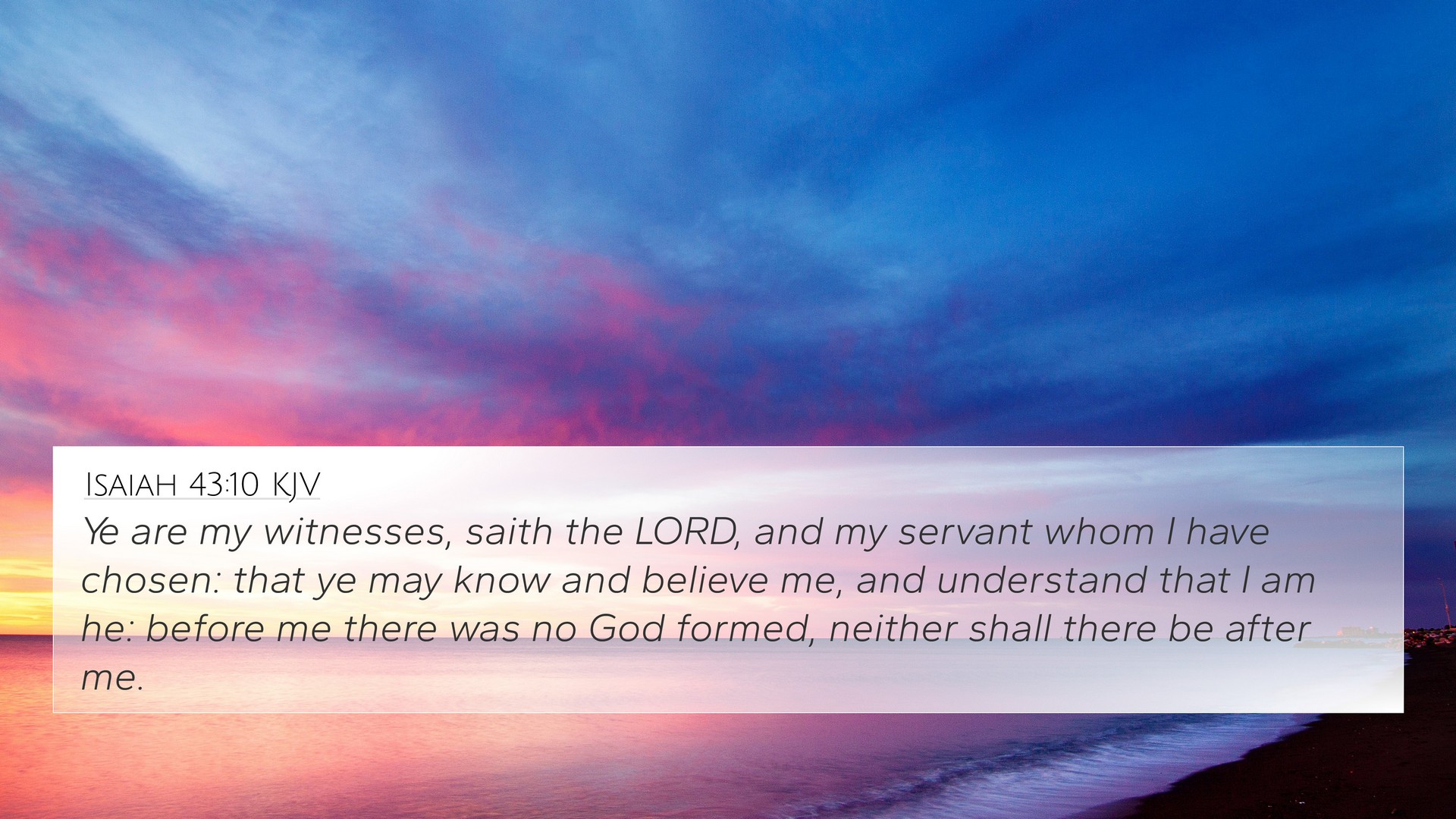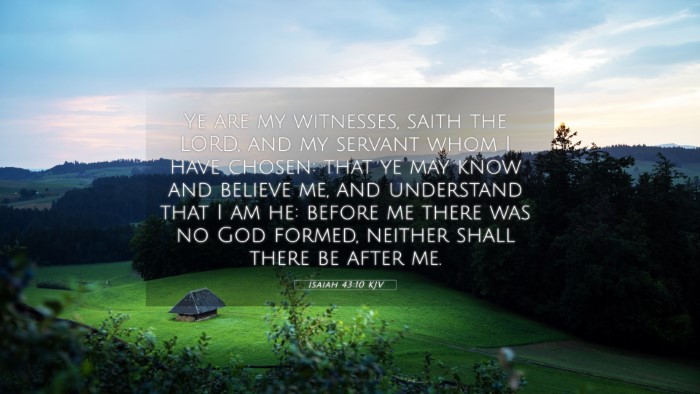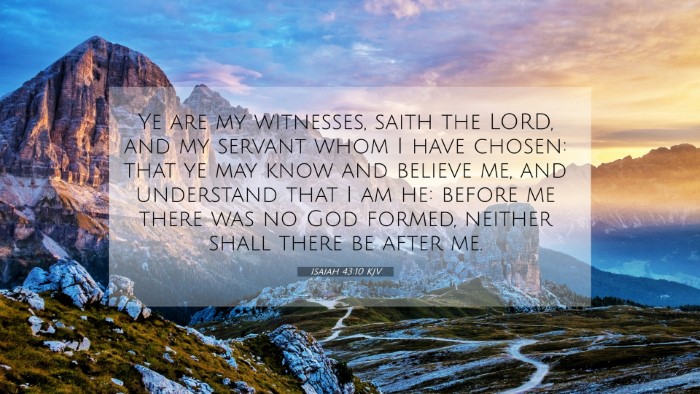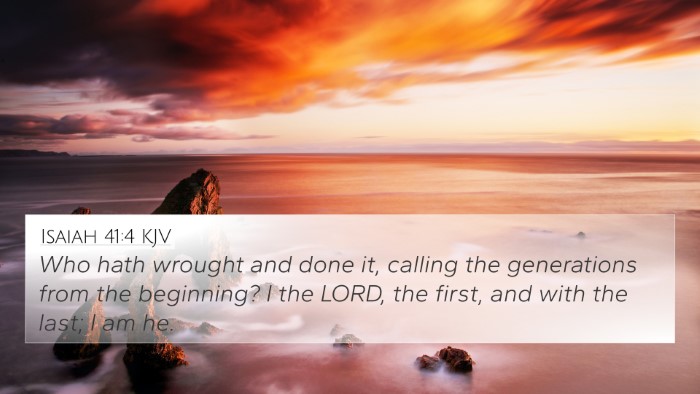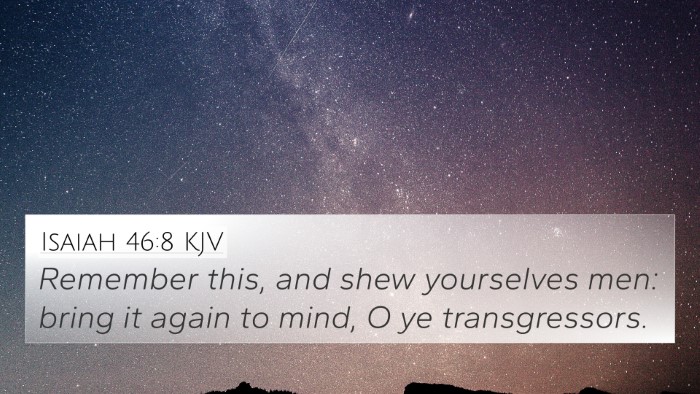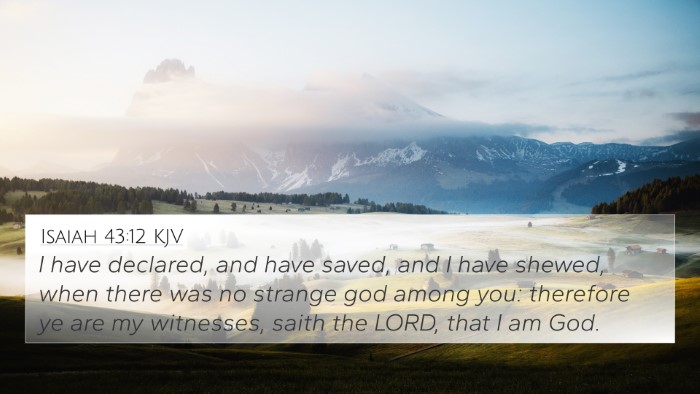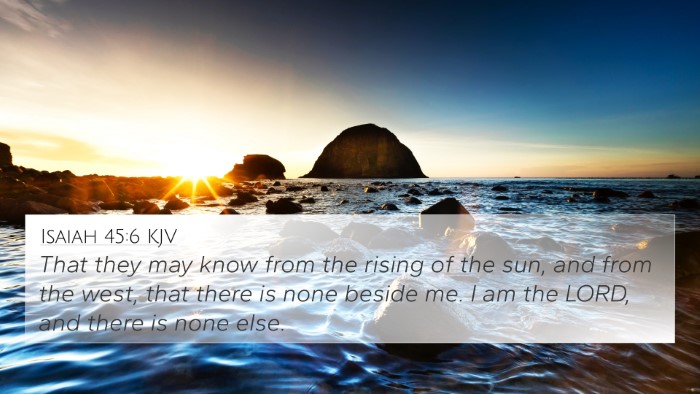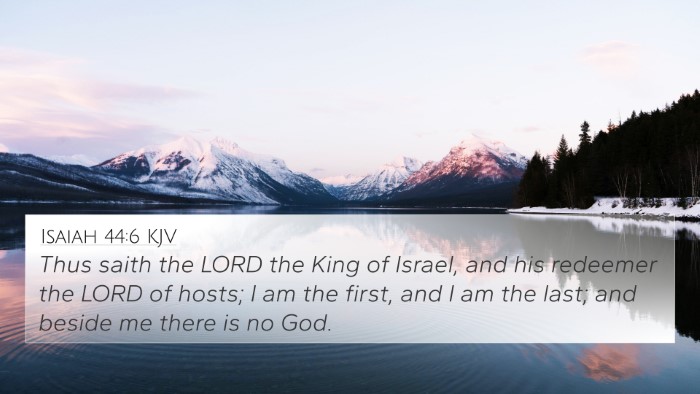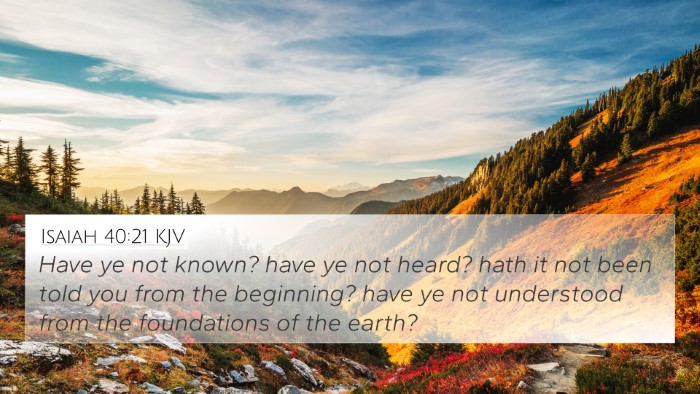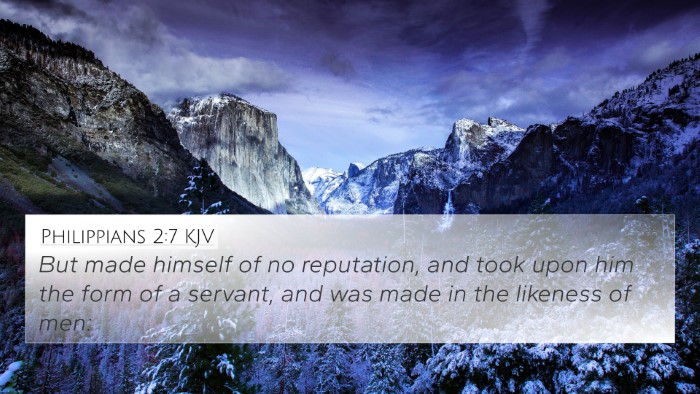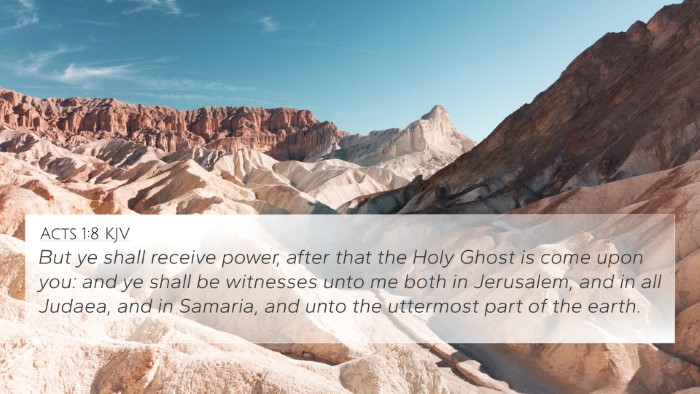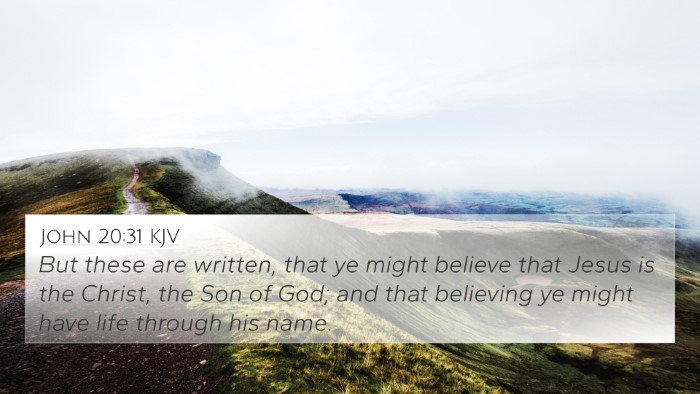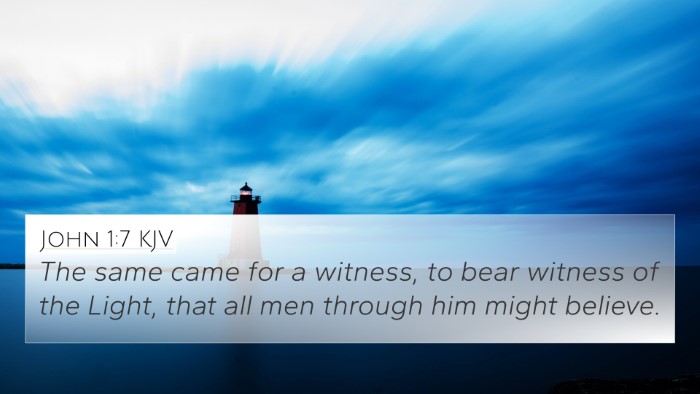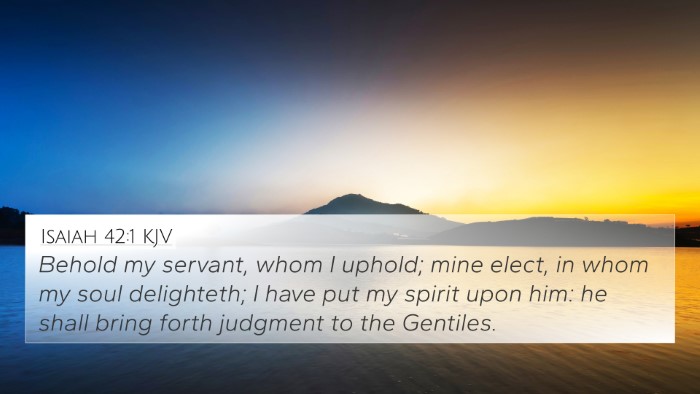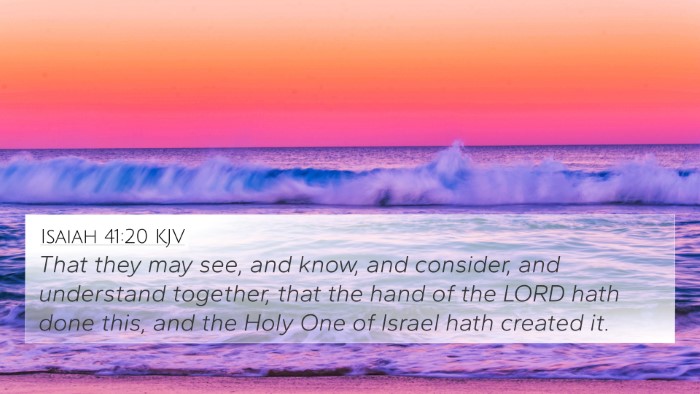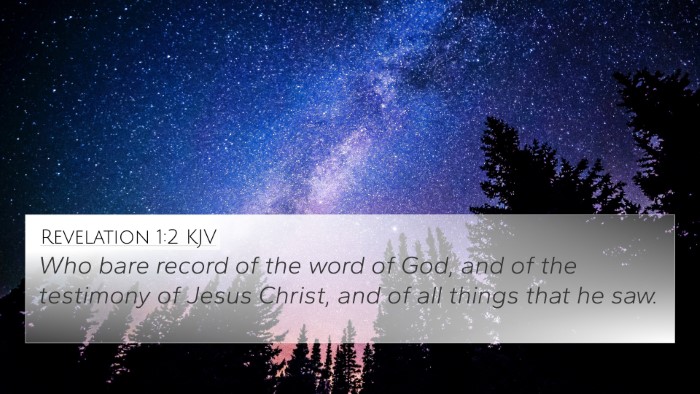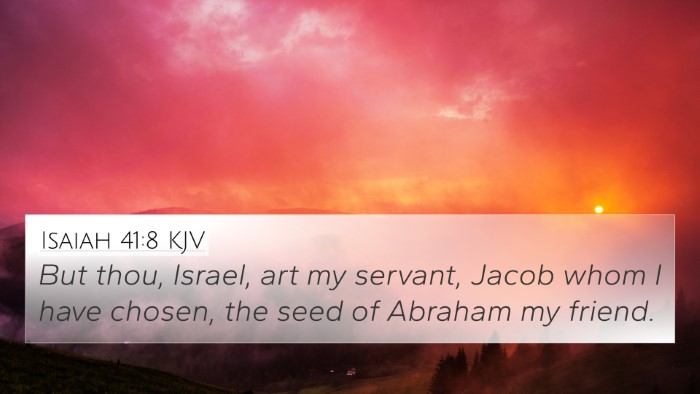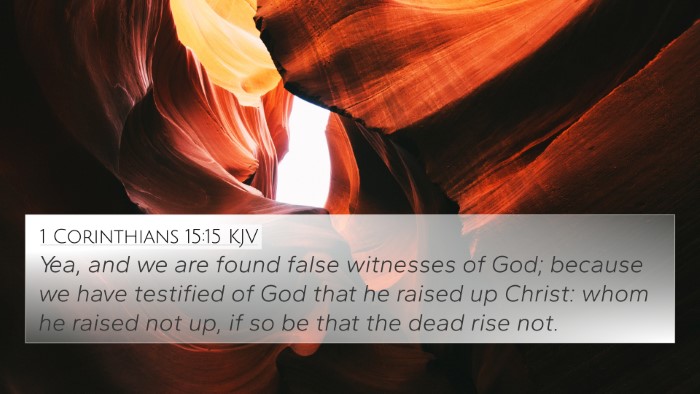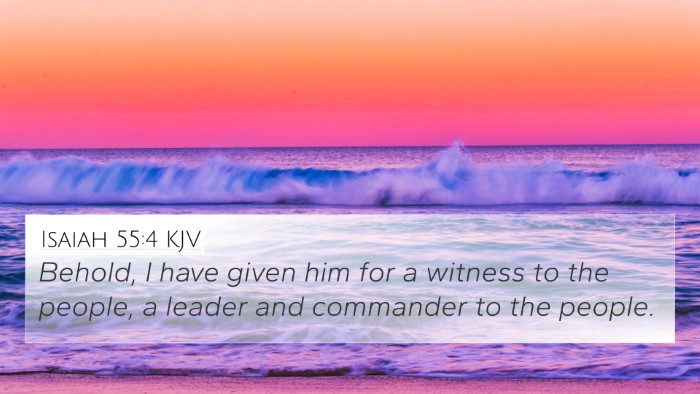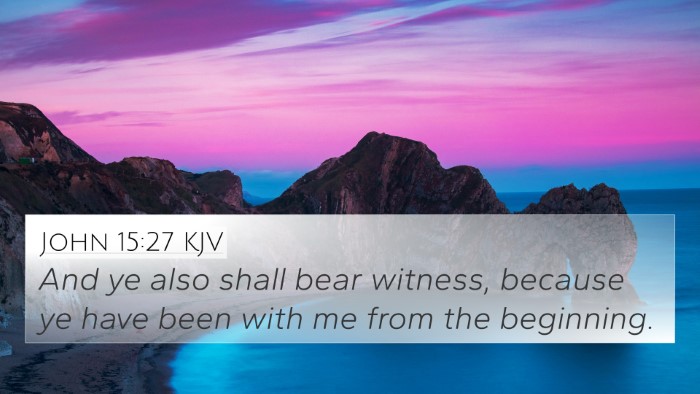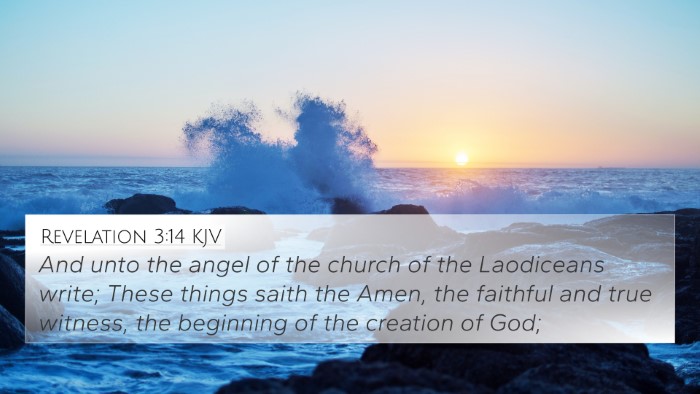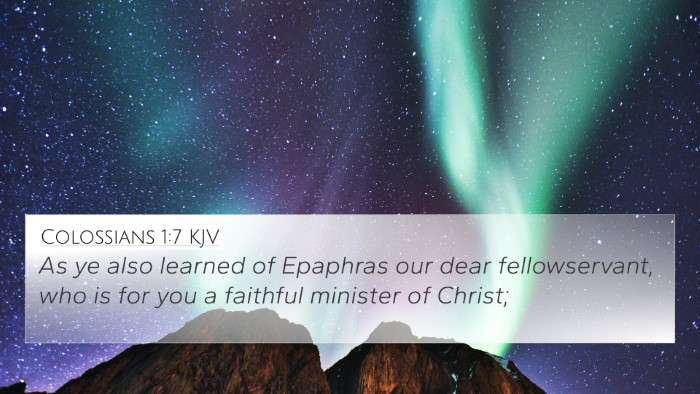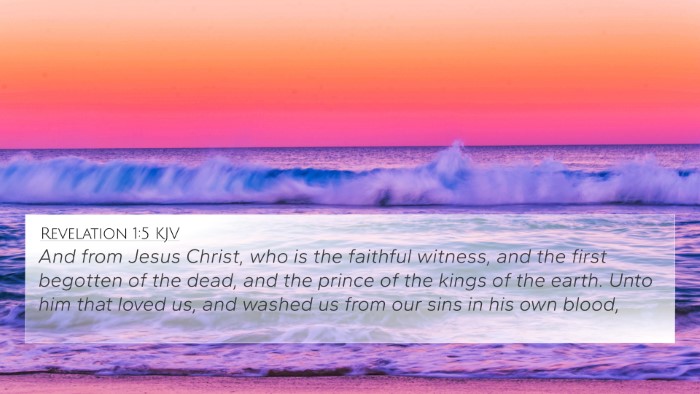Understanding Isaiah 43:10
Isaiah 43:10 states, "You are my witnesses, says the Lord, and my servant whom I have chosen, so that you may know and believe me and understand that I am he. Before me no god was formed, nor will there be one after me." This verse is a profound declaration of God's sovereignty and the role of His chosen people as witnesses to His truth.
Verse Meaning and Interpretation
This verse encapsulates several core theological themes:
- Divine Election: The reference to "my servant whom I have chosen" indicates God's sovereign choice of Israel as His elect people, highlighting the relationship and responsibility they have towards Him.
- Testimony and Witness: The calling to be witnesses emphasizes the role of believers to testify about God's nature and deeds. This is a foundational concept in the Biblical narrative, reinforcing the purpose of Israel to reflect God's glory to the nations.
- God’s Unique Sovereignty: "Before me no god was formed" clearly establishes the monotheistic belief that there is only one true God, a central theme in both Old and New Testaments.
- Faith and Understanding: The verse also addresses the need for believers to know, believe, and understand God, indicating that faith is rooted in recognition of God's identity and works.
Comprehensive Cross-References
Isaiah 43:10 connects with several other Biblical passages, enhancing our understanding of its themes:
- Exodus 19:6: "You will be for me a kingdom of priests and a holy nation." This verse illustrates the idea of God's chosen people, akin to the purpose mapped out in Isaiah 43:10.
- Acts 1:8: "But you will receive power when the Holy Spirit comes on you; and you will be my witnesses." This New Testament reference signifies the continuation of the witness theme, expanding it to all believers.
- 1 Peter 2:9: "But you are a chosen people, a royal priesthood." This echoes the idea of being chosen and set apart for God's service.
- Isaiah 44:6: "This is what the Lord says—Israel’s King and Redeemer, the Lord Almighty: I am the first and I am the last; apart from me there is no God." This reinforces God's unique sovereignty.
- John 17:3: "Now this is eternal life: that they know you, the only true God, and Jesus Christ, whom you have sent." This reflects the notion of knowing God as central to both faith and salvation.
- Romans 10:14: "And how can they believe in the one of whom they have not heard?" This verse connects with the mission of being witnesses, emphasizing the importance of proclamation.
- Deuteronomy 4:35: "You were shown these things so that you might know that the Lord is God; besides him there is no other." This further emphasizes the singularity of God as highlighted in Isaiah 43:10.
- Psalms 96:3: "Declare his glory among the nations, his marvelous deeds among all peoples." This verse underscores the duty of believers to be witnesses, showcasing the connection to Isaiah's call.
- Hebrews 11:6: "And without faith it is impossible to please God." This ties back to the idea of understanding and believing in God, as proclaimed in Isaiah 43:10.
- Isaiah 42:1: "Here is my servant, whom I uphold, my chosen one in whom I delight." This serves as a direct connection to God's choice and the concept of servanthood in Isaiah 43:10.
Thematic Connections between Bible Verses
The exploration of Isaiah 43:10 highlights the interconnectivity of scripture. The themes of divine choice, witness, faith, and God's singularity can be traced throughout the entirety of the Bible, demonstrating a coherent narrative woven through different books and authors.
Tools for Bible Cross-Referencing
Engaging in a cross-referencing study can enrich one's understanding of the Bible. Here are some tools and methods:
- Bible Concordance: A Bible concordance is an essential reference that helps locate specific verses and their connections.
- Bible Cross-Reference Guide: Guides can provide insight into verses that are thematically linked.
- Cross-Reference Bible Study: This method focuses on examining related passages to gain a deeper understanding of themes.
- How to Use Bible Cross-References: Learning how to systematically evaluate links between verses can enhance personal study.
- Bible Chain References: Following links from one verse to another helps to uncover thematic threads in scripture.
- Comprehensive Bible Cross-Reference Materials: Utilizing various resources helps in gathering extensive insights across different texts.
Comparative Bible Verse Analysis Techniques
Understanding how specific verses relate to one another can be achieved through:
- Identifying Connections between Old and New Testament: Recognizing parallels helps understand God's consistent message.
- Detailed Cross-Reference between Gospels: Examining synoptic similarities Deepens understanding of Jesus’ message and mission.
- Comparative Study of Pauline Epistles: Paul’s letters often refer back to Old Testament themes, linking them together.
- Cross-Referencing Psalms with New Testament Teachings: Psalms often foreshadow and reflect teachings found in the New Testament.
- Interpreting Biblical Themes through Cross-References: Themes such as grace, redemption, and prophecy can be traced throughout the Bible.
User Intent: Finding Cross-References
For those seeking to delve deeper into scripture, consider these user intent queries:
- What verses are related to Isaiah 43:10?
- Find cross-references for the theme of divine witness.
- How do Isaiah 43:10 and Acts 1:8 connect?
- Similarities between Isaiah 43:10 and John 17:3.
- Bible verses that support the idea of God's sovereignty.
Conclusion
Isaiah 43:10 serves as a cornerstone in understanding the nature of God and the role of His people. By utilizing the mentioned cross-references and engaging in thorough comparative studies, believers can draw rich, meaningful insights from scripture, connecting the dots throughout the Bible’s narrative.
